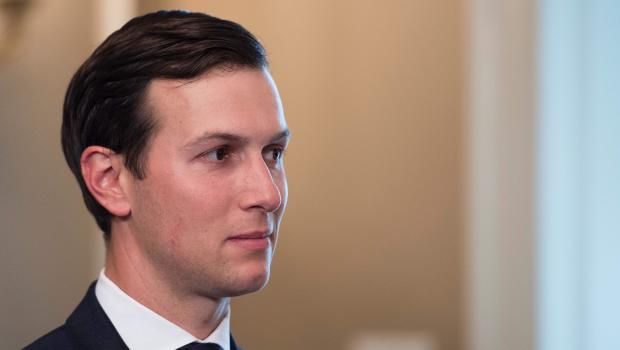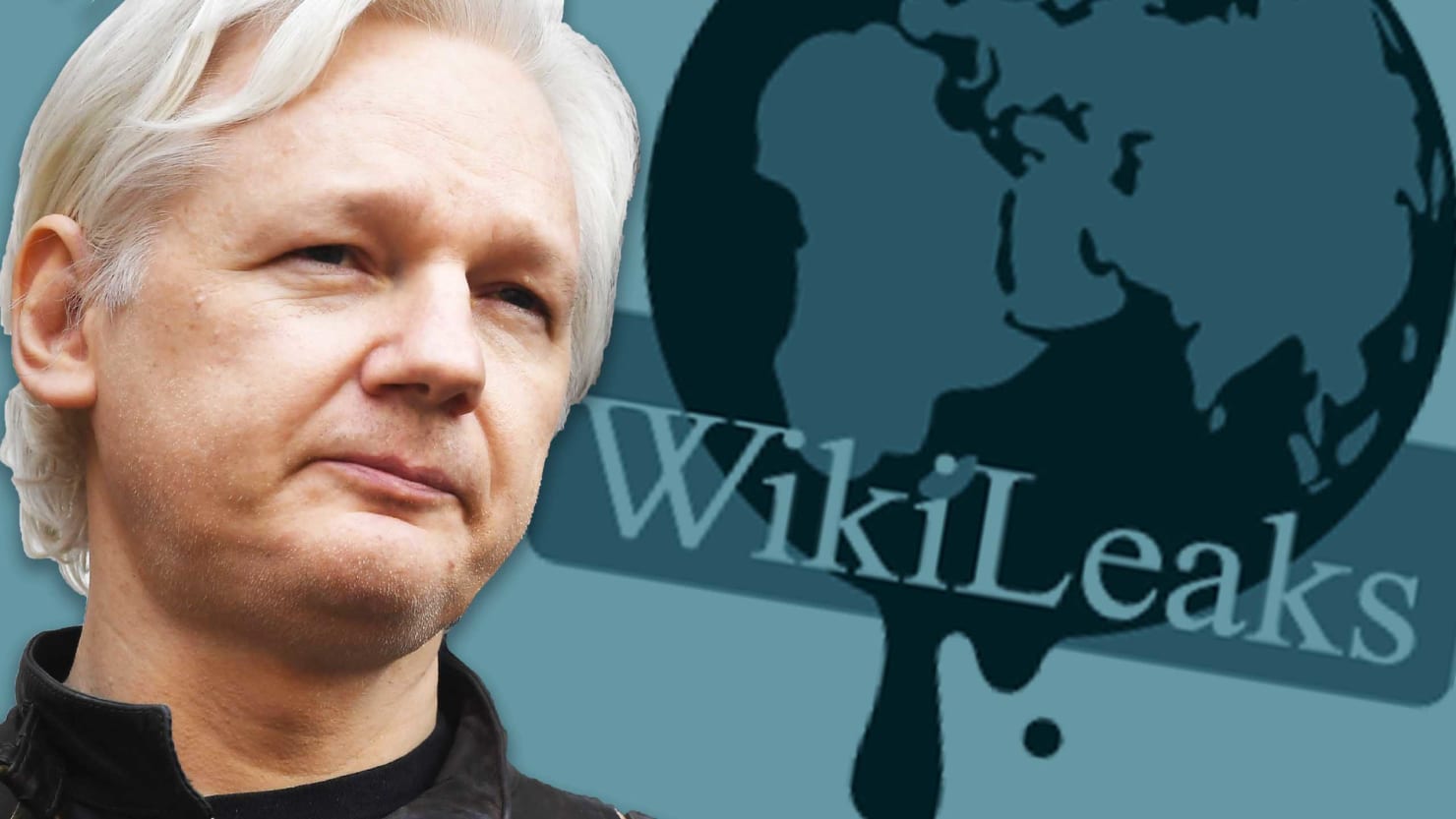***
He responded in a series of direct messages to Jardin, at first referencing himself in the third person and the majestic plural, as he often
does. “Since JA has never met or spoken to you we find it odd you should hold such a view,” read the message. “So what’s it based on?”
The messages went on to suggest Jardin praise Trump and his people for “doing something useful for once” by promoting WikiLeaks, “instead of, outrageously, suggesting that it is some form of anti-Americanism.”
“Hi there Julian. Is that a command?” Jardin shot back.
“If you can’t support the organization FPF [Freedom of the Press Foundation] was founded to support perhaps you should resign,” wrote Assange. After a pause, he repeated the suggestion. “You have a duty as a board member. If you can’t dispense it, perhaps you should resign.”
Knowing Assange’s reputation for vindictiveness, Jardin interpreted the messages as a personal threat.
She politely asked Assange not to contact her again, and then forwarded the exchange to the foundation’s board. “Oh my god,” replied Cusack, a friend of Jardin who’d joined the board at her invitation. “The only thing one can say is the pressure on him is incredible and everyone has a breaking point.” (Cusack declined to comment for this story; Assange did not immediately respond to a request to do so.)
The next month, nine days after Trump’s election victory, Freedom of the Press Foundation held its board meeting. Jardin brought up the issue of Assange, his messages to her, and the foundation’s continued support of WikiLeaks.
Much had changed since the foundation was formed. Today it has a $1.5 million annual budget and a staff of 15. Taking donations for WikiLeaks and other groups has become only a tiny part of the foundation’s work. In 2013, for example, the foundation took over development of SecureDrop, an open-source tool designed to make it safer for whistleblowers to submit information to reporters. Under the foundation’s stewardship, SecureDrop today is running in dozens of newsrooms, including The New York Times, The Washington Post, the Associated Press, and Bloomberg.
The question for the board at that post-election meeting was straightforward, if not simple: Should the foundation continue to process payments for WikiLeaks and Assange? Was there still a need, and was WikiLeaks still “a multi-national media organization and associated library,” as described on the foundation’s website, or had it become something else, something less journalistic, during the election?
“When the election reached its conclusion and WikiLeaks kept doing what it was doing publicly, I felt a sense of revulsion,” recalled Jardin, telling her story for the first time. “When our board meeting came up, I assumed that everybody else felt the same way.”
To Jardin’s dismay, they did not.
There was support and empathy on the board for Jardin, according to multiple sources, and a spectrum of perspectives on WikiLeaks. But Micah Lee was the only board member at the meeting to agree the time had come to cut ties. “Protecting free press rights for publishers we disagree with is important,” Lee told The Daily Beast, “but that doesn’t mean WikiLeaks should be able to harass our board members without consequences.”
While several on the board acknowledged that Assange had flown off the handle at Jardin, years of experience with the WikiLeaks founder had built up a certain emotional callus toward his histrionics. “At one point or another, we have all felt personally aggrieved by Julian,” Greenwald told The Daily Beast. Sympathy for Jardin over Assange’s DMs couldn’t become a reason for a free-press organization to take action.
“The contributions that WikiLeaks receives come from individual donors,” board member Rainey Reitman said in an interview. “We would be silencing readers of WikiLeaks who were trying to show their support.”
Similarly, WikiLeaks’ support for Trump could not become a reason for the foundation to cut off Assange. It would, several felt, set a dangerous precedent if the board tacitly affirmed that only some forms of published political content deserved press-freedom support. Such a move could risk undermining the Freedom of the Press Foundation.
***
But there was substantial support for taking up a more pragmatic question, one that hearkened back to the very reason the Freedom of the Press Foundation came into existence in the first place: whether WikiLeaks still needed the foundation to route donations to it.
In 2012, WikiLeaks had been facing financial strangulation after PayPal, Visa, and Mastercard bent to congressional pressure and stopped accepting donations for the secret-spilling site, and for the German Wau Holland Foundation, which handled most of WikiLeaks’ finances. That financial censorship, effectively imposed by the U.S. government, but without the checks and balances of a judicial process, appeared no less ominous four years later.
By all evidence, though, that financial
blockade dissolved years earlier, in 2013, after an Icelandic technology firm that processed payments for WikiLeaks won a lawsuit against the credit card companies. An archived copy of WikiLeaks’ donation page from just before the 2016 board meeting shows the organization once again accepting credit card and PayPal donations through Wau Holland, in addition to taking contributions through Freedom of the Press. WikiLeaks was no longer even claiming the blockade was still an issue.
BitCoin, too, has emerged as a popular conduit for WikiLeaks cash, and records indicate the group has received a total of 4,025 BTC through its public wallet address—roughly $29 million by current exchange rates.
Lee argued to his fellow board members that the rationale for supporting WikiLeaks had become obsolete. By the end of the meeting, the board had agreed to study the issue. “We resolved as a board to investigate this question to determine whether such a blockade still existed,” Timm said.
Jardin says she felt unsupported in the meeting, and four days later she told the foundation she was taking a leave of absence. Jardin is a cancer survivor, and she was then battling life threatening side-effects from treatment. “There is nothing like the threat of death to help you clarify what you spend your time on,” she says. On Dec. 2, she quietly resigned from the board, citing her health.
After Jardin stepped down, the board continued to chew over the issues she’d raised, albeit slowly. By the board’s last meeting late this summer, it determined that it couldn’t verify that the blockade against WikiLeaks still existed. The foundation drew up plans to tell WikiLeaks that if it couldn’t present evidence of a blockade, the Freedom of the Press Foundation would end its WikiLeaks donation channel—a decision that will mark a milestone for both organizations.
The foundation hastens to point out that Assange’s personal actions and politics are irrelevant to its decision. “Like every board, our members have a variety of opinions,” said Timm, “but our primary motivation as an organization has never been whether we agree with everything that WikiLeaks does or says.” But there’s no denying that some on the board have soured on WikiLeaks. Snowden, sources close to him tell The Daily Beast, has felt for a long time that Assange has taken WikiLeaks far from a positive, constructive vision of what Snowden believes WikiLeaks could or should be.
The foundation’s angst mirrors that of the larger community of former WikiLeaks supporters. The leaked messages between Assange and Trump Jr. recently prompted Pierre Omidyar, the billionaire backer of The Intercept, to tweet that they “disqualify” WikiLeaks from being considered a media organization. After Assange
defended his election-chaos pitch as intended to “generate a transformative discussion about corrupt media, corrupt PACs and primary corruption,” Omidyar
shot back: “Isn’t this an invitation to conspire to knowingly and falsely accuse election officials and a variety of people of fraud?”
James Ball
worked for WikiLeaks before becoming a journalist with
The Guardianand BuzzFeed U.K. It has become astonishing, he said, to watch someone who has thundered against journalists for unethical behavior turn around and pitch a potential source on securing an ambassadorship for himself.
What Ball called “the tragedy of WikiLeaks” is that transparency and accountability “are good principles, and lots of people have defended WikiLeaks because they believe in those principles and hoped [Assange] did, too. This is the final mark of someone who’s in it for himself,” Ball said. “He’s a sad man in a broom cupboard.”
For her part, Jardin takes no satisfaction in WikiLeaks’ potential expulsion, which she thinks comes at least a year too late.
“I don’t think that Julian Assange should be in solitary confinement,” says Jardin. “I feel awful for him, I bear him no ill will. But my loyalty is to my country. My loyalty is to my community… You can’t fight the kind of repression Trump represents and indirectly assist it.”
DISCLOSURE: One of this article’s co-authors helped develop the open-source project that became SecureDrop, and later handed it off to the Freedom of the Press Foundation. Additionally, he formerly sat on the foundation’s technical advisory panel, and has made small donations to the organization. The other co-author reported on Edward Snowden’s leaks with Greenwald, Poitras, and Ball at The Guardian
, where Timm is a columnist.



























